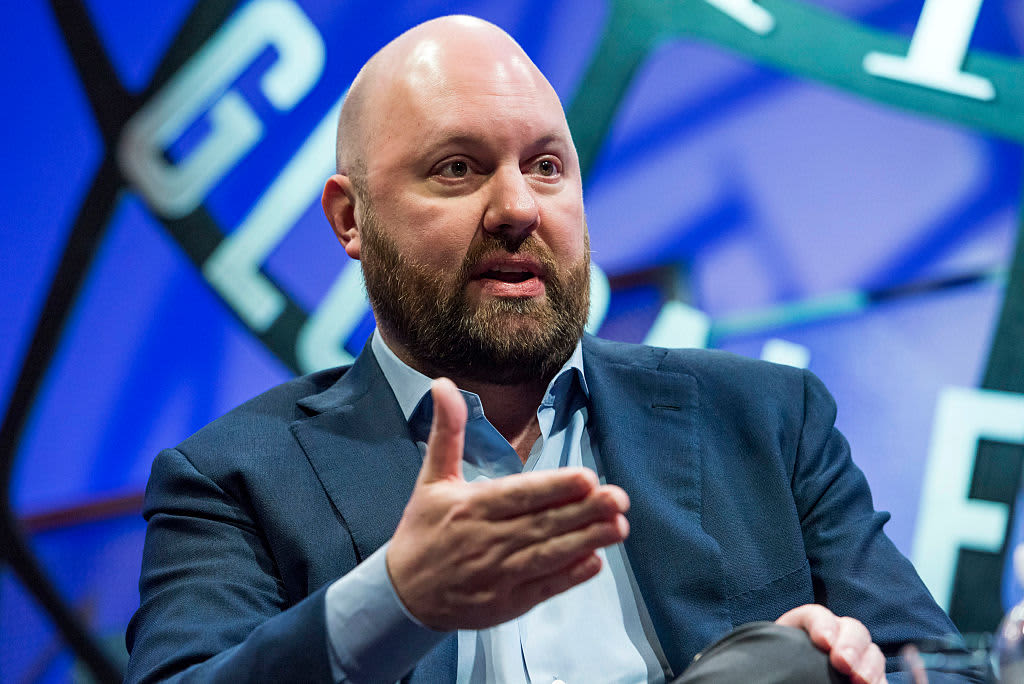Billionaire and legendary Silicon Valley investor Marc Andreessen has every second of his day and night scheduled, including free time and time to think — and the practice is critical to his success, he says.
“The big thing is basically *everything* is on the calendar. Sleep is on the calendar, going to bed is in there and so is free time,” Andreessen, 48, a co-founder of Silicon Valley venture capital firm Andreessen Horowitz, told angel investor and Twitter, Facebook and Snap alum Sriram Krishnan for a story published on The Observer Effect website on Saturday.
“Free time is critical because that’s the release valve. You can work full tilt for a long time as long as you know you have actual time for yourself coming up. I find if you don’t schedule enough free time, you get resentful of your own calendar,” Andreessen said.
While today keeping such a meticulously booked and color coded calendar gives Andreessen a sense of calm (“If I didn’t have this, I’d be in a panic the very first moment I wake up,” he said), it wasn’t always that way.
In fact, it is a “complete 180 degrees” from how he used to live and prosthelytize productivity.
Take for example a June 2007 blog post in which Andreessen advised his blog readers, “don’t keep a schedule…. I mean: refuse to commit to meetings, appointments, or activities at any set time in any future day.”
“I lived a fair amount like that earlier in my career when I was programming,” Andreessen told Krishnan. “Basically working on exactly one thing all the time until you’re exhausted and collapse. And then get up the next morning and work on that thing some more.
“I never really had a calendar. I just knew what I was working on. In a sense, that’s the same as having no schedule,” Andreessen said.
In 2007, Andreessen was 35. Nine years earlier, Netscape, which he co-founded, had sold to AOL for $4.2 billion in stock. He was also a co-founder of automation software company Opsware (previously Loudcloud), which sold to Hewlett Packard for $1.6 billion later in 2007.
In 2009, Andreessen co-founded VC firm Andreessen Horowitz, and it was a “hurricane” of work, Andreessen told Krishnan.
“We had decided one of the values of the firm is respect for the people we work with. And part of that respect is — we don’t drop balls,” he told Krishnan. “If you contact us, you’re going to get a response. If we commit to doing something, we’re going to do that thing. It was just a necessity to be able to have some sort of system,” he said of his productivity turnaround.
The VC firm has invested in household tech brands including Facebook, Lyft, Pinterest, Slack, Instagram, Skype, Airbnb, BuzzFeed and Soylent.
And as an executive with such a packed schedule, Andreessen needs structure, so now he has his “amazing and indefatigable assistant” of 20 years block out everything on his calendar, from meetings, reading and sleep to “office,” “project,” “down” and “free” time.
It’s essential to schedule unstructured time, like time to think, because not doing so leads to host of problems, according to Andreessen.
To start with people like managers and executives “just never have any time to actually think. And that turns out to be a fairly important thing,” Andreessen told Krishnan.
(Amazon CEO Jeff Bezos calls it time for “wandering,” which he has said is necessary for big innovation. It is “an essential counter-balance to efficiency,” Bezos wrote in his 2018 shareholder letter.)
Additionally, without unstructured pockets, executives can’t respond to last-minute issues without upending their entire schedule.
“It’s like those classic movie scenes when there’s a huge crisis and somebody calls out to their secretary ‘Cancel my schedule!’ Well, maybe you wouldn’t need to do that if you had some flexibility in your calendar,” Andreessen told Krishnan.
Finally, having no unstructured time makes managers into micromanagers by being “regimented” to the degree that “they end up having a long line outside their office. … They kind of bottleneck your organization too. It’s demoralizing to work in an organization like that because basically, whatever that is, it’s the opposite of delegation.”
See also:
Feeding America CEO: How growing up with 107 brothers and sisters helped make me successful
Elon Musk always thought SpaceX would ‘fail’ and he’d lose millions
Jeff Bezos to exec after product totally flopped: ‘You can’t, for one minute, feel bad’
